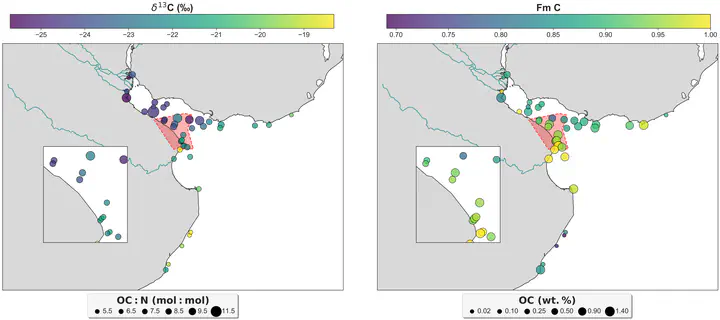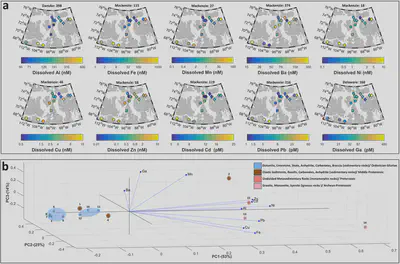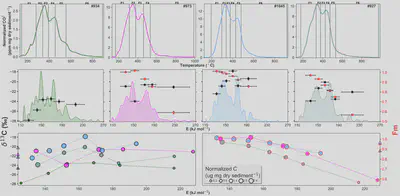Riverine and Estuarine Geochemistry – the land to ocean continuum

River systems and estuaries along with continental margins are a central component of the Earth’s OC and TE cycles by integrating multiple reservoirs and acting as source and/or sink terms. As such, in the B.A.B Lab we study from gauging the magnitude and processes governing the supply of TEs from rivers and continental shelf (especially bioactive TEs), to the complex processes that control OC cycling and transport along the river-ocean mixing endmembers.
Some work in this section includes:
- Uncovering how latitudinal gradients of environmental conditions and bedrock geology control the distributions of TEs, rare earth element and isotopes in freshwater systems, and establishing baselines to evaluate the consequences of future anthropogenic impacts.

- Assessing the significance of continental contributions of TEs to the coastal environment under different environmental/climatic scenarios.
- Studying the OC cycling along river ocean endmembers by employing a suite array of techniques such as bulk and compound specific stable isotopes and radiocarbon analyses, ramped oxidation analyses and microbial tracers. Coupling all these measurements, we are aiming to shed light on the complex processes (e.g. particulate settling, flocculation, increased productivity, degradation) which control the carbon cycling and transport along the river-ocean interphase, where strong gradients in biological, physical and chemical conditions take place. A special emphasis is given to study the terrestrial organic carbon alterations across the salinity gradient, which in turn affect organic carbon burial efficiency and yield climate implications.

For more details about “Riverine and Estuarine Geochemistry” related studies, please see the “Publications section” (filter tag: Rivers & Estuaries)